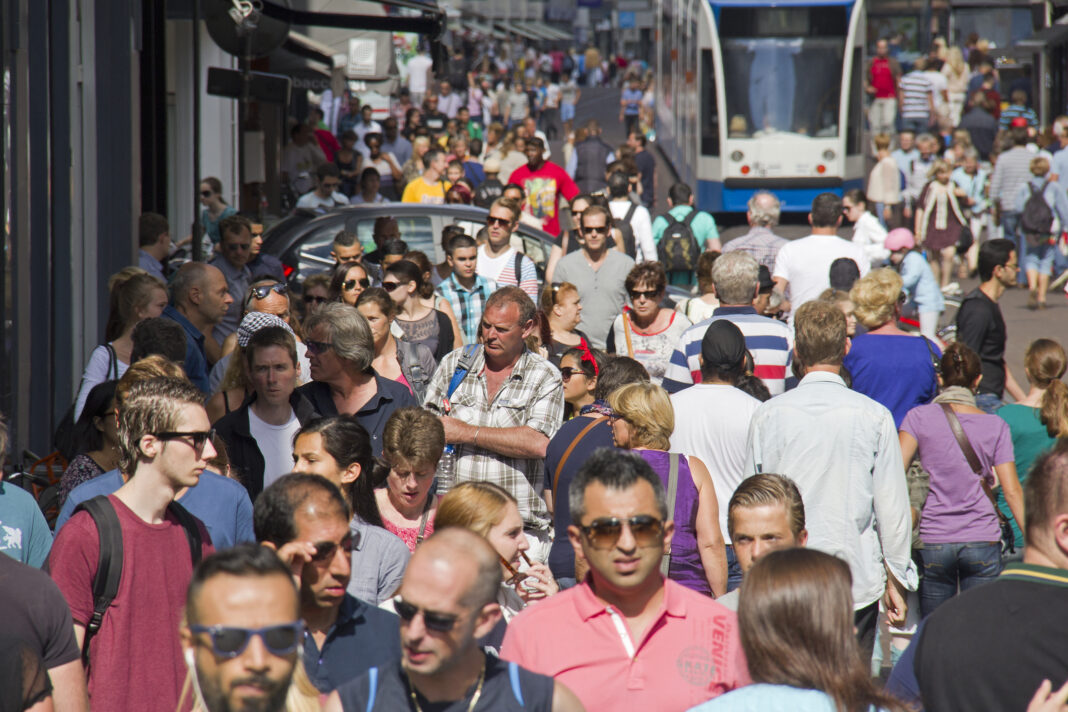If your train journey this morning felt a little extra cramped, you can just blame it on the general population. Today, the Netherlands’ population counter is predicted to reach 18 million people.
In just eight years, the country has seen its population increase by a whopping one million people — and no, this isn’t due to a thriving birth rate.
According to the Central Bureau for Statistics (CBS), the death rate in the Netherlands is currently higher than the birth rate. Instead, this growth is actually thanks to increased migration from abroad.
Did you know: We can’t really know how many people exactly live in the Netherlands, so CBS’s population counter is just an estimate, not a real count.
Why’s that? For one, the registration of births, deaths, and immigrants takes time. On top of that, the official number of inhabitants only counts people who are registered, meaning some homeless people and asylum seekers are not in the numbers.
Who is joining us?
The CBS found that the largest number of newcomers are from European and Asian countries, with the highest proportion of people coming from Ukraine, Syria and Poland.
This is not only due to the ongoing wars in Ukraine and Syria, but also the better economic situation offered by the Netherlands, along with the many English-language study options.
What does this mean?
You can now boast to your friends about living in the second most populated country in Europe. 🤓
Yep, with 518 people per square kilometre, only Malta can beat the Netherlands, with 1700 people per square kilometre.
However, if you find yourself standing alone in the countryside of Limburg, you may be a bit confused by these findings. That’s because municipalities such as Limburg and Groningen have actually seen their population fall since 2016.
Instead, you’ll find that certain parts of the country are more popular (and populated) than others.
In particular, municipalities surrounding the country’s biggest cities have seen the effects of this population growth, with cities such as Utrecht experiencing a population growth of 10.4% in the past eight years.
What do you think of these findings? Tell us your thoughts in the comments!




Has this influx of Syrian people been positive or a negative for the Dutch people.?
Positive